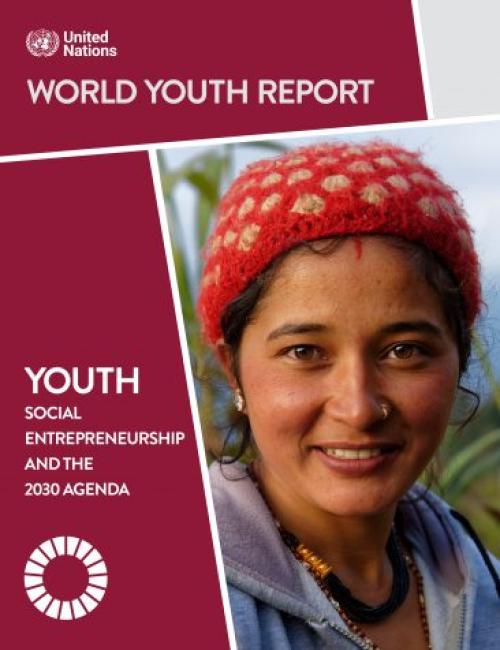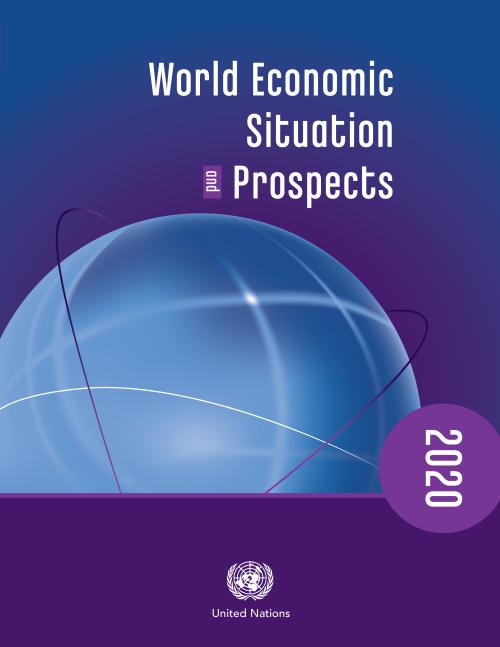Publications
The new report examines five megatrends: climate change; demographic shifts, particularly population ageing; urbanization; the emergence of digital technologies; and inequalities –that are affecting economic, social and environmental outcomes. Efforts to reverse or redirect these trends must be reinforced to ensure that we achieve the full measure of the 2030 Agenda, and set the stage for an inclusive, sustainable and equitable future during the next 75 years.
All trends are the result of human activity, and as such, they can be shaped by human decisions and policy choices. By making the right choices today, without further delay, it is not too late to shape the major trends of…

This guide has been developed as a resource for Member States to provide information about the inclusion of youth in their delegations and offers ideas for those with existing youth delegate programmes on how to potentially strengthen them. It includes sections on establishing a programme, suggestions for possible roles of youth delegates and practicalities to be considered.

Tearing down barriers that prevent more young people from becoming successful social entrepreneurs will contribute to advancing the Sustainable Development Goals and tackling the socio-economic impacts of COVID-19, according to a new report released today by the UN Department of Economic and Social Affairs.
The report calls on governments and other decision-makers to remove obstacles to youth social entrepreneurship, such as access to start-up funds that are presently limiting the ability of young people to engage in profitable activities. Many regulatory systems often prevent — sometimes involuntarily — young people from accessing financial products and services needed…

Against the backdrop of a devastating pandemic, the global economy is projected to contract sharply by 3.2 per cent this year, according to the United Nations World Economic Situation and Prospects (WESP) mid-2020 report.
The global economy is expected to lose nearly $8.5 trillion in output over the next two years due to the COVID-19 pandemic, wiping out nearly all gains of the previous four years. The sharp economic contraction, which marks the sharpest contraction since the Great Depression in the 1930s, comes on top of anaemic economic forecasts of only 2.1 percent at the start of the year.
The report estimates that GDP growth in developed economies is expected to…
Growing inequality in both developing and developed countries could exacerbate divisions and slow economic and social development according to a new UN report, the World Social Report 2020, that was launched today. More than two thirds of the world’s population today live in countries where inequality has grown, and inequality is rising again even in some of the countries that have seen inequality decline in recent decades, such as Brazil, Argentina and Mexico.
The impacts of inequality are being felt at the personal and national levels. According to the report, which is produced by the UN Department of Economic and Social Affairs, highly unequal societies are less effective at…
Impacted by prolonged trade disputes, the global economy suffered its lowest growth in a decade, slipping to 2.3 per cent in 2019. The world, however, could see a slight uptick in economic activity in 2020 if risks are kept at bay, according to the United Nations World Economic Situation and Prospects (WESP) 2020.
The Report states that growth of 2.5 per cent in 2020 is possible, but a flareup of trade tensions, financial turmoil, or an escalation of geopolitical tensions could derail a recovery. In a downside scenario, global growth would slow to just 1.8 per cent this year. A prolonged weakness in global economic activity may cause significant setbacks for sustainable…
 Welcome to the United Nations
Welcome to the United Nations